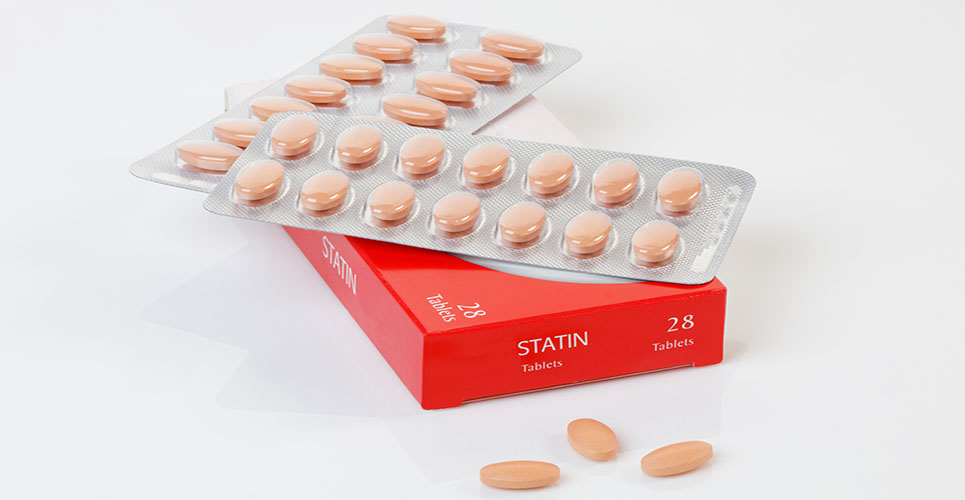teaser
Use of statins was associated with a slight increase in fasting glucose levels in patients at increased risk of type 2 diabetes in a new observational study.[1]
The study, published online in BMJ on September 13, 2012, was conducted by Dr Nina Rautio (Pirkanmaa Hospital, Tampere, Finland) and colleagues. They concluded that their findings suggest statin use “might have unfavourable effects on glucose metabolism and . . . hamper beneficial effects of lifestyle intervention in people at high risk of type 2 diabetes.”
Intensive lifestyle intervention key
Rautio told heartwire that the results should not be interpreted as discouraging statin use in people at increased risk of or with established CVD. But she emphasised that patients at high risk of diabetes would benefit from more intensive lifestyle intervention. “Healthcare professionals should take time, especially in statin users, to change their lifestyle to a healthier direction—that is, healthy diet, nonsmoking, and physical activity.”
She added: “Type 2 diabetes has been shown to be preventable in people at very high risk by changing lifestyles. If a patient is worried about the potential harmful effects of statin treatment, they should consult a doctor about this matter and not stop treatment on their own.”
Commenting on the study for heartwire, lipid expert Dr Roger Blumenthal (Johns Hopkins University Medical Center, Baltimore, MD) said: “This provocative paper by Rautio et al is based on observational data, and that is its main limitation. It does end by saying that the benefits of statin therapy for the prevention of CVD in people with an increased risk [of type 2 diabetes] are still unequivocal. I agree with that last statement.”
Net benefit
Blumenthal did, however, concede that statins may be associated with a modest rise in blood glucose in patients with multiple components of the metabolic syndrome. However, he cited the recent analysis from the Justification for the Use of Statins in Primary Prevention: An Intervention Trial Evaluating Rosuvastatin (JUPITER) study, which showed a clear net overall benefit over the mean two-year follow-up.
He concluded: “The message for clinicians is that patients who have multiple components of the metabolic syndrome need to try to further improve their lifestyle habits to combat the possible rise in glucose when a statin is begun. This paper suggests that statins may have unfavourable effects on glucose metabolism in certain people, so compliance with lifestyle improvements will be very important. We look forward to more prospective studies on this topic.”
In the current study, researchers followed 2798 patients at high risk of diabetes for one year. Patients were given counselling on lifestyle interventions; fasting blood glucose was measured at baseline and one year.
Results showed that 484 individuals (17.3%) used statins at baseline. Of these patients, 7.5% developed type 2 diabetes during follow-up compared with 6.5% of those not taking statins, a nonsignificant difference.
Increase in fasting blood glucose
However, fasting glucose increased by 0.08 mmol/L in statin users but remained unchanged in nonusers. This was a significant difference and remained so after adjustment for age, sex, baseline fasting glucose, presence of CVD, use of antihypertensive and/or CAD medication, weight, and one-year weight change.
The researchers wrote: “As far as we know, this is the first study examining the association of lifestyle intervention on the risk of type 2 diabetes according to the use of statins. This question is of utmost clinical importance, since we now know that type 2 diabetes is preventable by lifestyle changes.”
They noted that an increase in fasting glucose in statin users suggests deterioration in insulin secretion capacity, but added that two-hour glucose values, which reflect insulin sensitivity, were similarly decreased in statin users and nonusers.
Rautio pointed out that this study was based on patient self-reporting and had a relatively short follow-up period, adding: “The role of lifestyle intervention should be investigated in more detail in statin users and non users in an appropriately designed study.”
Source
- Rautio N, Jokelainen J, Oksa H, et al. Do statins interfere with lifestyle intervention in the prevention of diabetes in primary healthcare? One-year follow-up of the FIN-D2D project. BMJ 2012; DOI:10.1136/bmjopen-2012-001472. Available at: http://www.bmj.com/.
